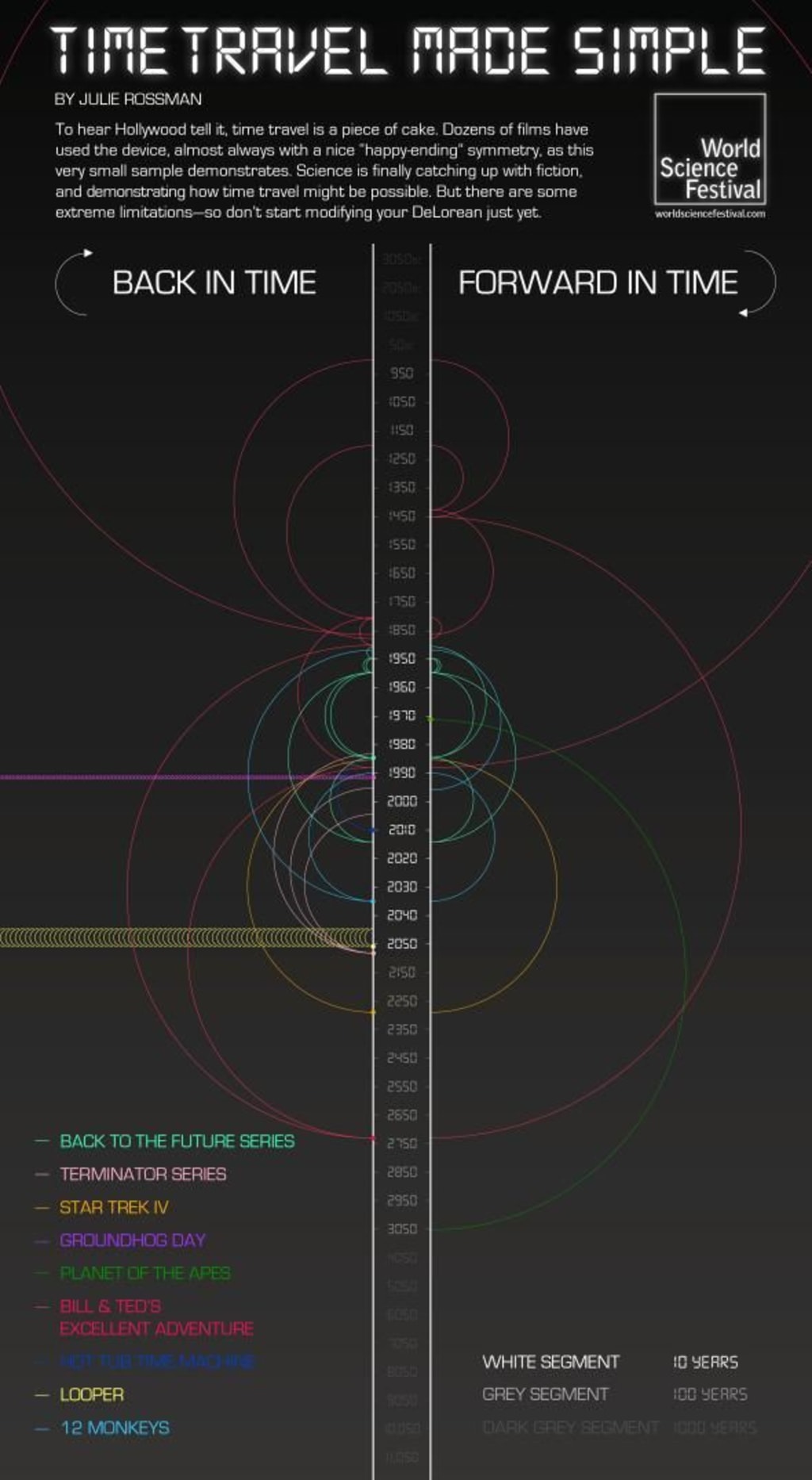is Time Travel scientifically possible ?
Exploring the Science, Theories, and Implications of Traversing Time

Time travel has captivated human imagination for centuries, appearing in countless works of fiction, from H.G. Wells' "The Time Machine" to modern movies like "Interstellar" and "Avengers: Endgame." The concept of moving through time, whether to the past or the future, challenges our understanding of reality and raises profound questions about the nature of the universe. This article explores the scientific basis for time travel, examining theories from physics, technological possibilities, paradoxes, experimental evidence, and the philosophical and ethical implications of such a profound capability.
Theoretical Foundations
Einstein's Theory of Relativity
Special Relativity
Albert Einstein's theory of special relativity, introduced in 1905, revolutionized our understanding of time and space. According to special relativity, time is not an absolute entity but is relative and can vary depending on the observer's speed. This theory introduced the concept of time dilation, where time slows down for objects moving at speeds close to the speed of light compared to those at rest. This effect, although imperceptible at everyday speeds, becomes significant at velocities approaching the speed of light.
General Relativity and Curved Spacetime
In 1915, Einstein expanded his theory into general relativity, which describes gravity as the curvature of spacetime caused by mass and energy. Massive objects, like stars and planets, create indentations in the fabric of spacetime, and this curvature dictates the motion of objects and the flow of time. General relativity suggests that time can be affected by gravity—a phenomenon known as gravitational time dilation. Clocks closer to massive objects tick slower than those further away, a concept confirmed by experiments involving atomic clocks placed at different altitudes.
Wormholes
Definition and Types
Wormholes, or Einstein-Rosen bridges, are theoretical passages through spacetime that could create shortcuts for long journeys across the universe. They are solutions to the equations of general relativity, representing tunnels with two ends at separate points in spacetime. There are different types of wormholes, including traversable wormholes, which theoretically could allow for time travel if stable and safe passage were possible.
Theoretical Models and Feasibility
The feasibility of wormholes for time travel depends on the existence of exotic matter with negative energy density, required to keep the wormhole open. While such matter has not been observed, quantum theory predicts the possibility of its existence. The Casimir effect, an observed quantum phenomenon, hints at negative energy, but harnessing it for wormhole stabilization remains speculative. Theoretical physicists continue to explore models that might make wormholes a practical means for time travel.
Quantum Mechanics and Time Travel
Quantum Entanglement and Superposition
Quantum mechanics, governing the behavior of particles at the smallest scales, introduces phenomena that challenge classical intuitions about time. Quantum entanglement, where particles become interconnected and instantly affect each other regardless of distance, suggests a form of instant communication across time and space. Superposition, where particles exist in multiple states simultaneously, also opens the door to discussions about parallel timelines and multiple outcomes.
Quantum Tunneling
Quantum tunneling, the process by which particles pass through barriers they classically shouldn't be able to, demonstrates the non-intuitive nature of quantum mechanics. This phenomenon has been proposed as a mechanism for time travel, where particles could "tunnel" through time barriers. However, practical applications of quantum tunneling for macroscopic time travel remain purely theoretical.
Technological Challenges and Proposals
Current Technological Limitations
Energy Requirements
The energy required for time travel mechanisms proposed by current theories is beyond our present capabilities. For instance, creating a wormhole large enough for a human to pass through would require energy comparable to the output of an entire star. Generating and manipulating such vast amounts of energy safely poses a significant challenge.
Material Constraints
Building a structure capable of withstanding the extreme conditions associated with time travel, such as intense gravitational forces or the energetic demands of maintaining a wormhole, exceeds our current material science. Theoretical materials like exotic matter with negative energy density are essential but remain hypothetical.
Proposed Time Travel Mechanisms
Warp Drives
Warp drives, like the Alcubierre drive, propose moving a spacecraft faster than the speed of light by contracting space in front of it and expanding space behind it. This concept doesn't violate the laws of physics since it doesn't involve moving through space faster than light but rather moving space itself. However, it requires negative energy, which has not been practically realized.
Time Machines (Tipler Cylinders, Cosmic Strings)
Proposals like the Tipler cylinder involve rotating an infinitely long, massive cylinder at high speeds to create closed timelike curves, allowing for travel to the past or future. Similarly, cosmic strings, hypothetical one-dimensional defects in spacetime, could create time loops if configured correctly. Both concepts, however, rely on conditions and materials that are currently beyond our reach.
Paradoxes and Logical Considerations
The Grandfather Paradox
One of the most famous time travel paradoxes is the grandfather paradox. It posits that if a time traveler were to go back and kill their grandfather before their parent was born, it would prevent the time traveler's existence, thereby preventing the act of traveling back in time in the first place. This logical inconsistency challenges the feasibility of altering the past.
The Bootstrap Paradox
The bootstrap paradox occurs when an object or information sent back in time becomes the source of itself in the future, creating a causal loop with no clear origin. For example, if a time traveler brings a novel from the future and publishes it in the past under their name, who originally wrote the novel? This paradox raises questions about the nature of causality and information.
Multiverse Theory and Parallel Universes
One proposed solution to time travel paradoxes is the multiverse theory, suggesting that each time travel event creates a new, parallel universe. In this scenario, altering the past would result in a different timeline, leaving the original timeline unaffected. This interpretation aligns with the many-worlds interpretation of quantum mechanics, which posits the existence of countless parallel universes for every possible outcome.
Experimental Evidence and Research
Time Dilation Experiments
Atomic Clocks and High-Speed Travel
Experiments with atomic clocks have provided empirical evidence for time dilation. Clocks flown on high-speed aircraft or satellites exhibit measurable differences in elapsed time compared to those on the ground, consistent with predictions from special and general relativity. These experiments confirm that time passes differently depending on relative velocity and gravitational potential.
Cosmic Rays and Muons
Muons, subatomic particles produced by cosmic rays, provide another natural example of time dilation. Muons generated in the upper atmosphere travel toward Earth at near-light speeds, allowing them to reach the surface despite their short lifespans. The extended survival time of muons due to time dilation has been observed and matches theoretical predictions.
Current Research and Future Directions
Scientists continue to investigate the principles of time travel through various theoretical and experimental approaches. Research into quantum gravity, unifying general relativity and quantum mechanics, might reveal new insights into the nature of time. Advances in quantum computing and particle physics also hold the potential to deepen our understanding of time-related phenomena and bring us closer to practical applications.
Philosophical and Ethical Implications
Impact on Free Will and Determinism
Time travel introduces profound philosophical questions about free will and determinism. If the future can be visited, does it imply that future events are predetermined, challenging the notion of free will? Alternatively, if the past can be altered, does it suggest that history is malleable and not fixed? These questions have significant implications for our understanding of human agency and the nature of reality.
Ethical Considerations
Time Tourism
The possibility of time tourism, where individuals travel to different
eras for leisure or study, raises ethical concerns about the impact on historical events and cultures. The introduction of modern technology and knowledge to past societies could have unpredictable and potentially harmful consequences.
Altering Historical Events
Deliberate attempts to change historical events, whether to correct perceived injustices or achieve certain outcomes, pose significant ethical dilemmas. The unintended consequences of such actions could be catastrophic, affecting countless lives and altering the course of history in unforeseen ways.
Societal Impact
The advent of time travel would have profound effects on society, reshaping our understanding of history, culture, and identity. Economically, time travel could revolutionize industries, creating new markets and opportunities while potentially disrupting existing ones. Culturally, it could lead to a more profound appreciation of historical contexts and interconnectedness across time.
Conclusion
The scientific exploration of time travel, while still largely theoretical, offers fascinating insights into the nature of time and the universe. Advances in physics, particularly in relativity and quantum mechanics, provide a foundation for understanding how time travel might be possible. Despite the significant technological challenges and paradoxical implications, the pursuit of time travel continues to push the boundaries of human knowledge and imagination. As research progresses, the possibility of time travel may transition from science fiction to science fact, offering new perspectives on our place in the cosmos and the intricate tapestry of time.
About the Creator
Salif Sagna
Salif | 17 | Senegal
Passionate about science, art, and psychology. Sharing my journey of discovery and learning. Join me as I explore the mysteries of the mind and the universe
Enjoyed the story? Support the Creator.
Subscribe for free to receive all their stories in your feed. You could also pledge your support or give them a one-off tip, letting them know you appreciate their work.





Comments
There are no comments for this story
Be the first to respond and start the conversation.